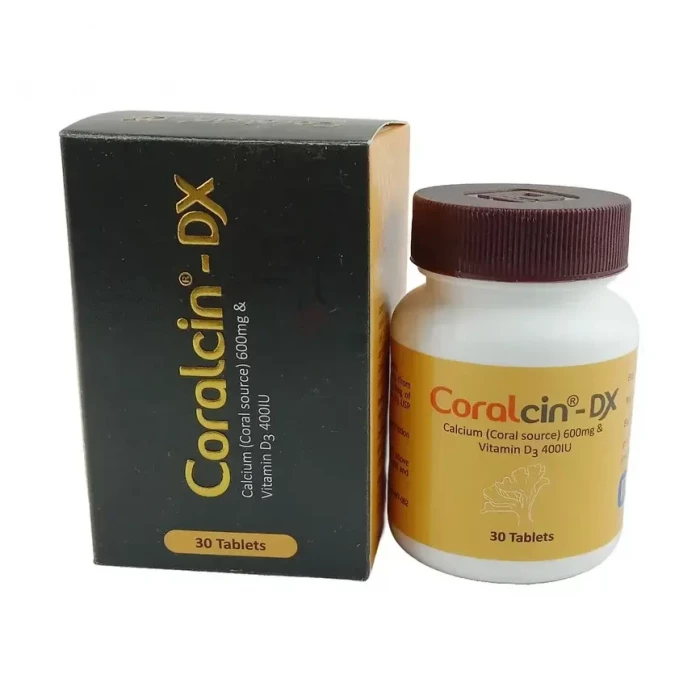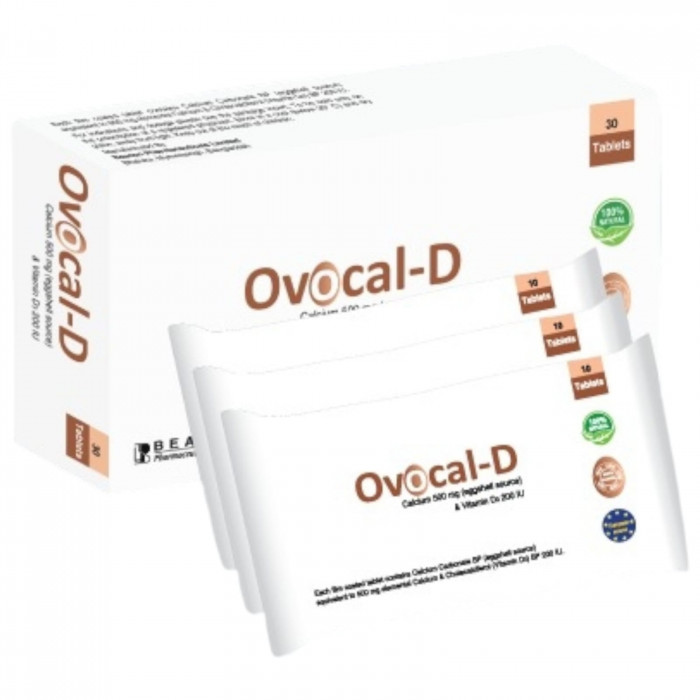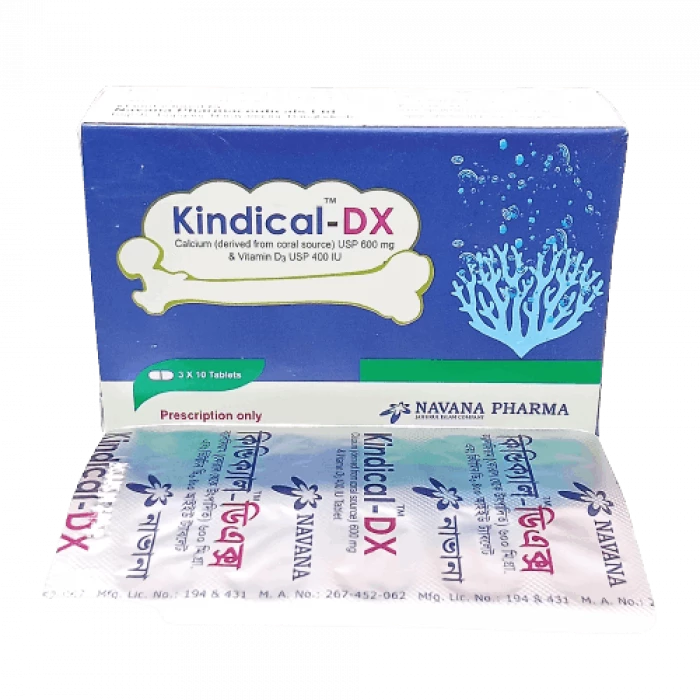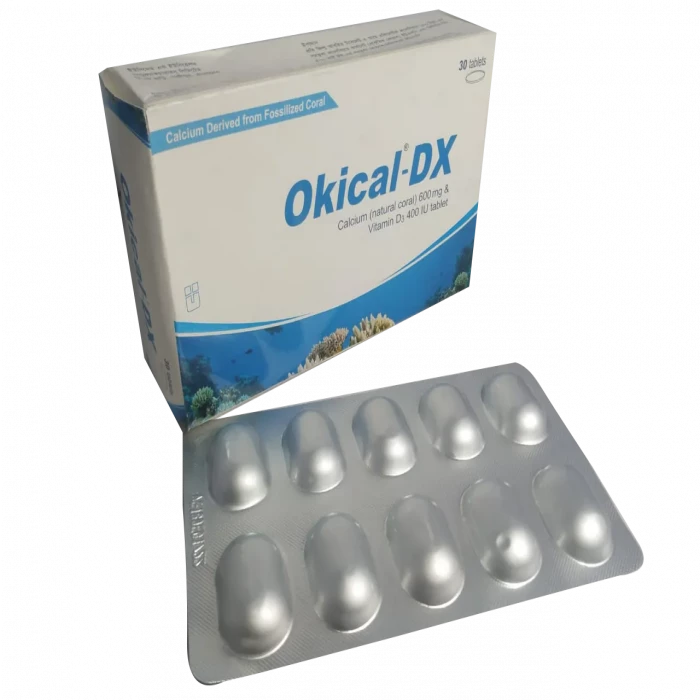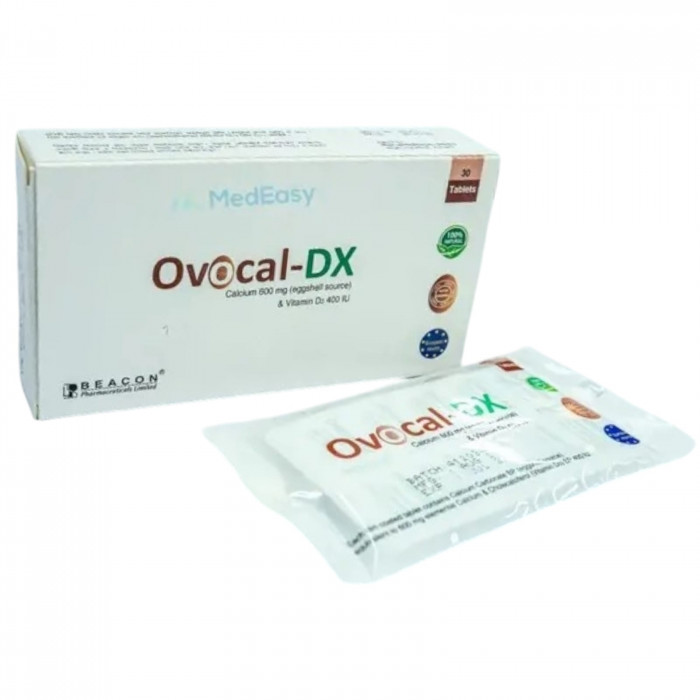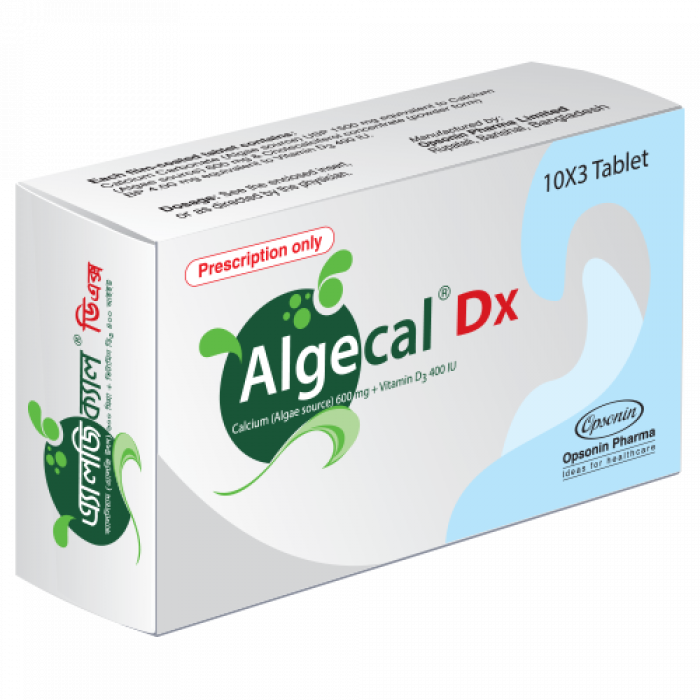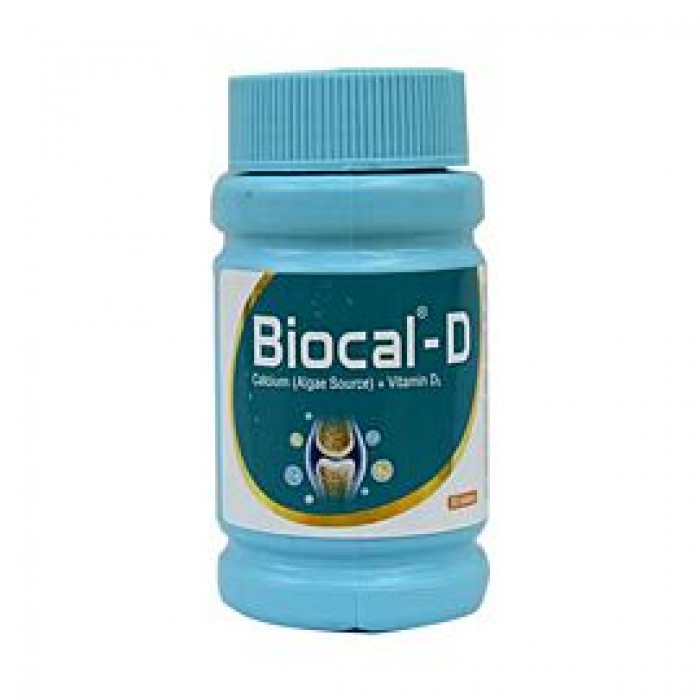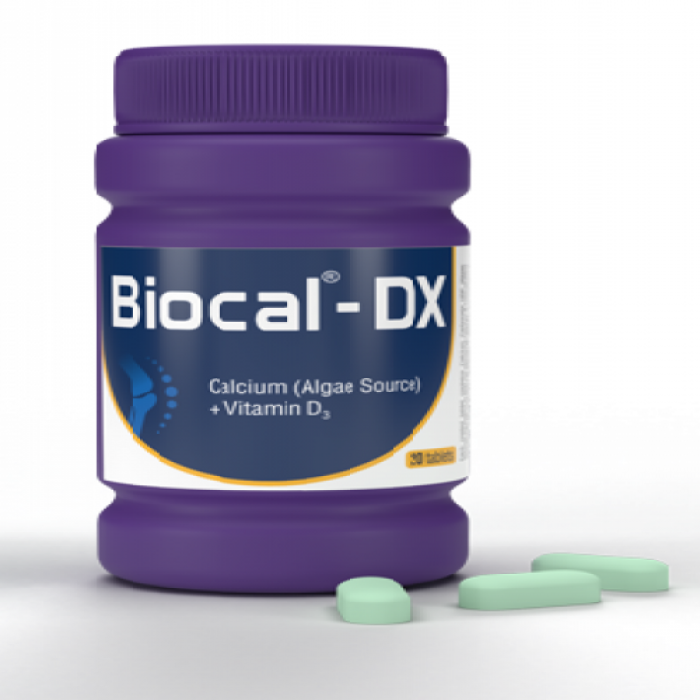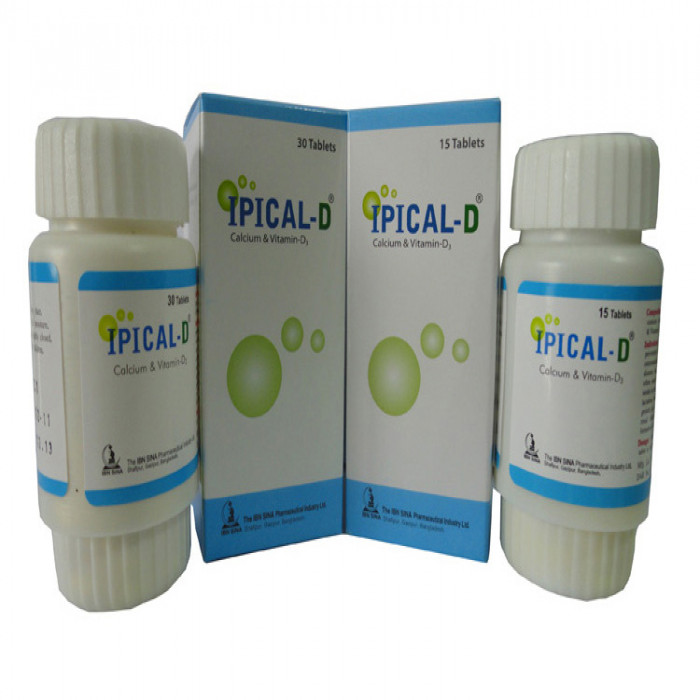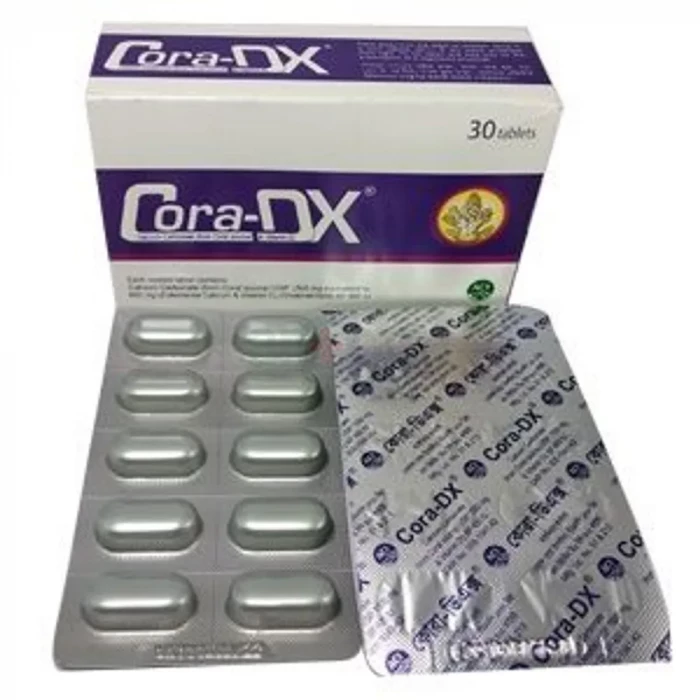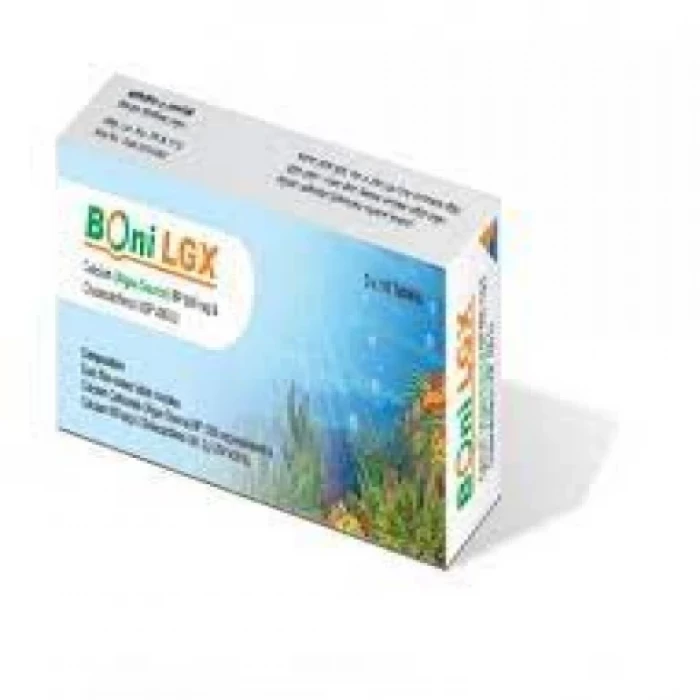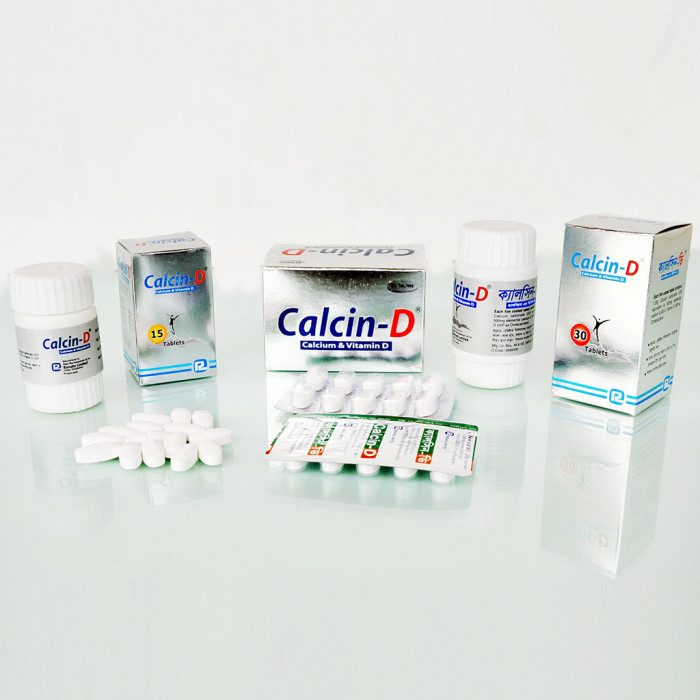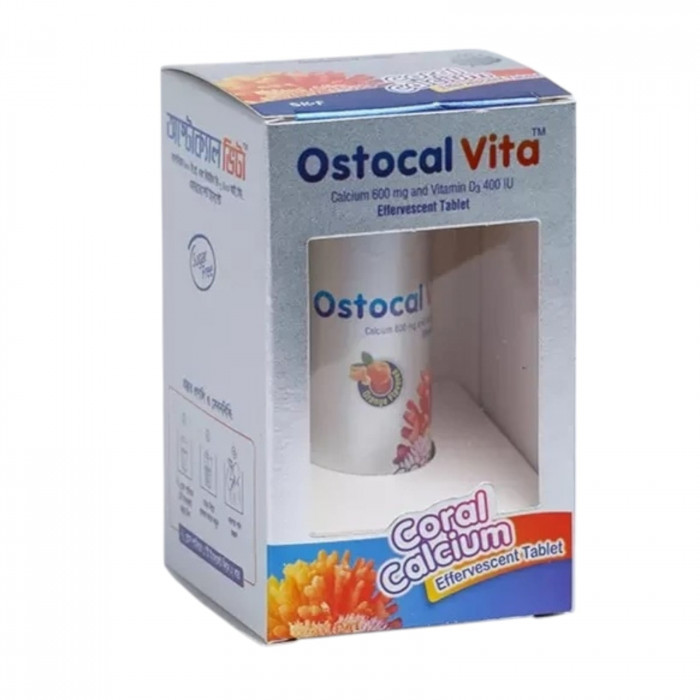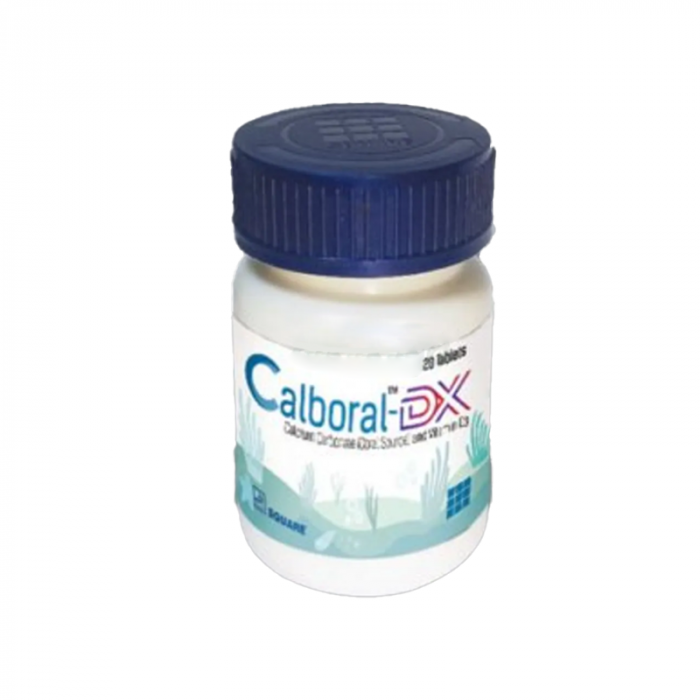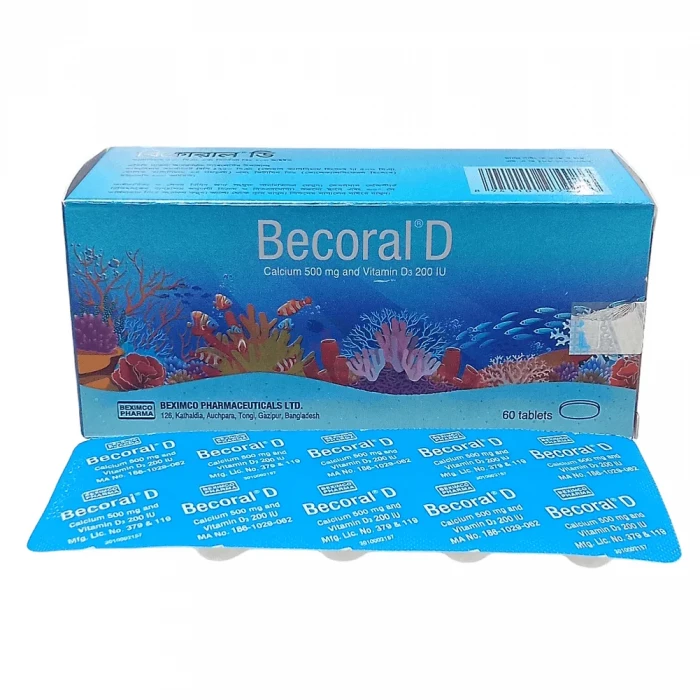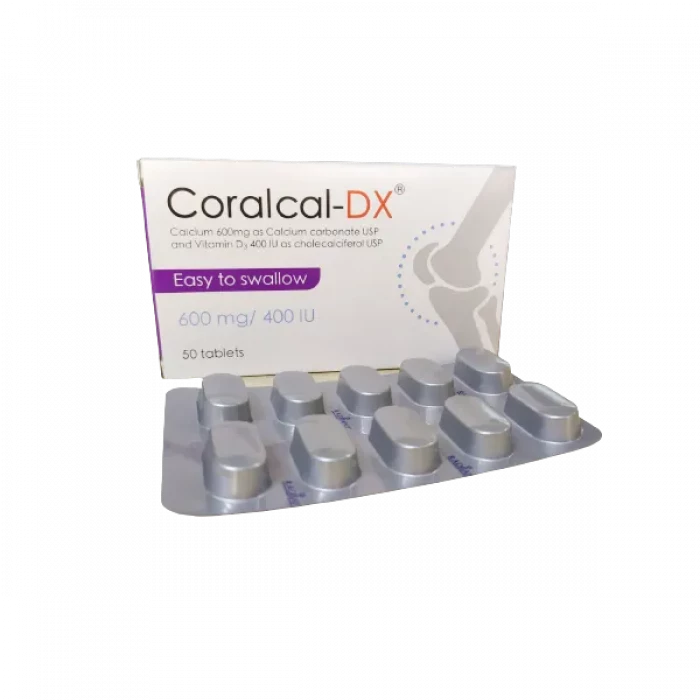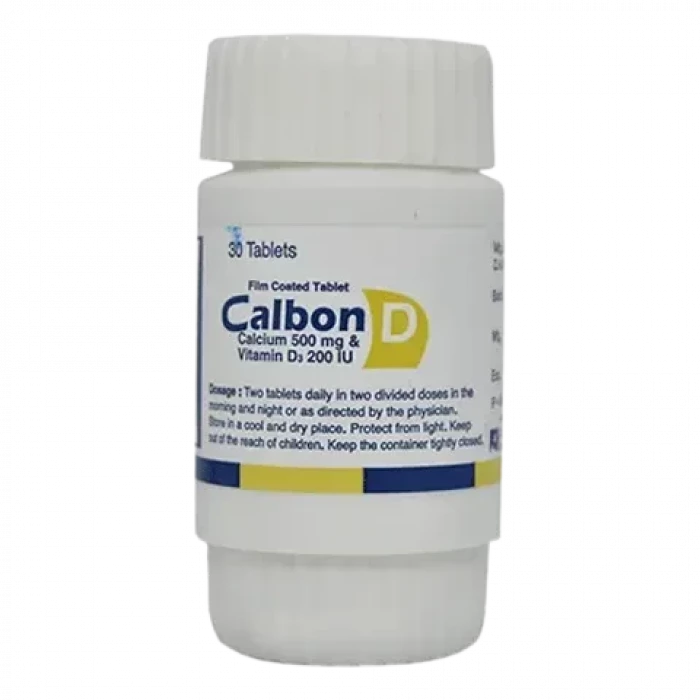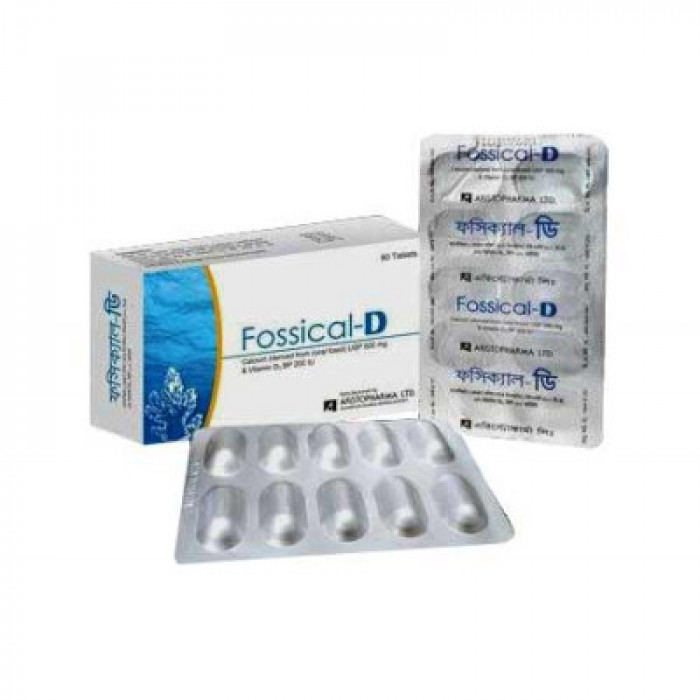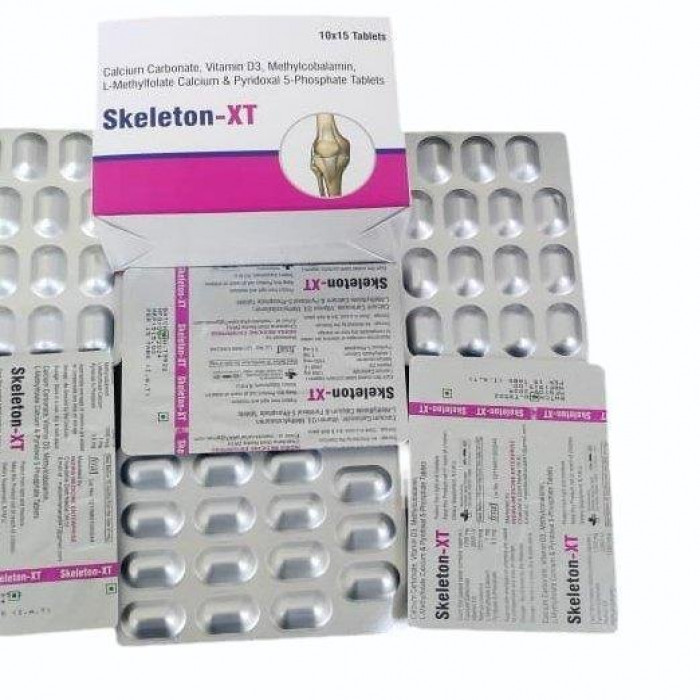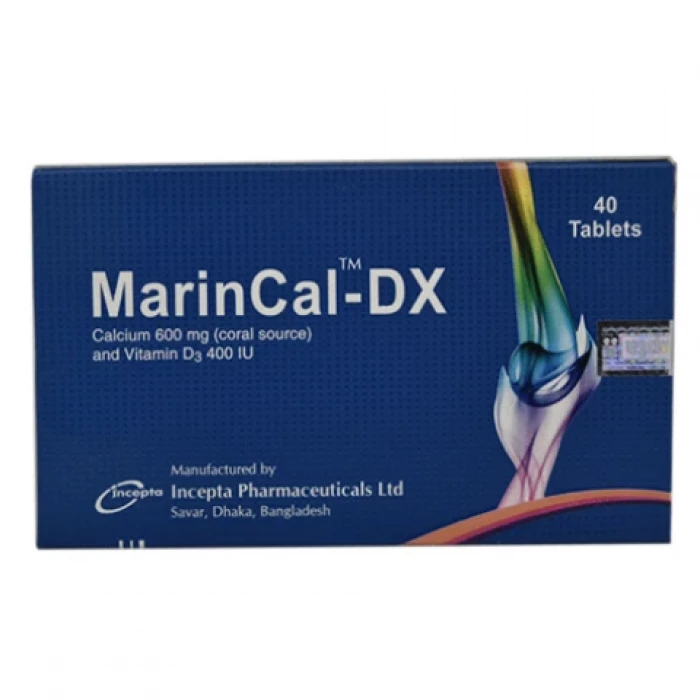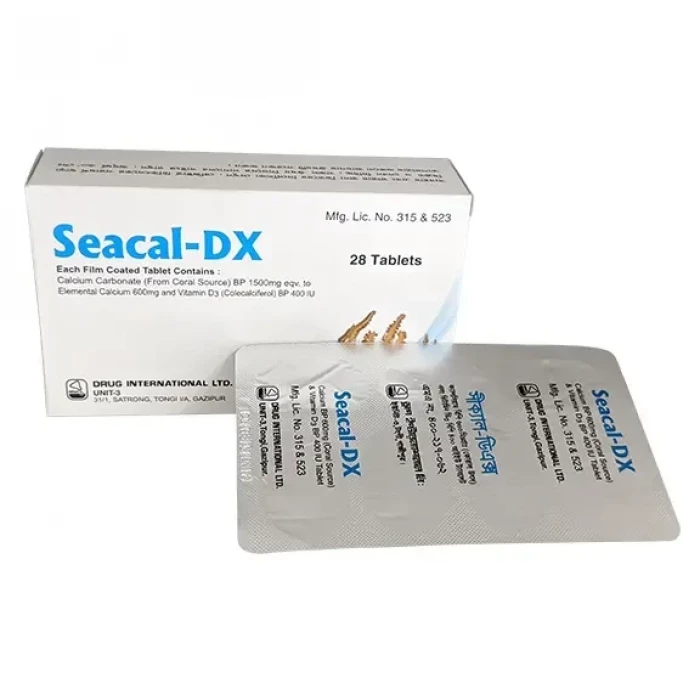
✔ 100% Authentic Product
👁️ Currently Viewing 463
Seacal-DX 600mg+400IU Tablet 1 Strip
Calcium and Vitamin D3 play vital roles in correcting or preventing negative calcium balance. These nutrients enhance nerve signaling and muscle functionality and support proper cardiac performance. Calcium, a critical component of bone mineral, is essential for neurotransmission, muscle contraction, enzymatic reactions, and cellular signaling processes. Vitamin D3, a fat-soluble sterol, maintains calcium and phosphate balance in the body, promotes calcium absorption in the gut, and contributes to bone formation and mineralization. Together, they work synergistically to support bone development and reduce the risk of osteoporosis and fractures.

100% Genuine Products, Guaranteed
Safe & Secure Payments, Always
Fast, Secure & Efficient Delivery
Proper Packaging
 Cash on Delivery - All over Bangladesh
Cash on Delivery - All over Bangladesh Regular Delivery - 8-12 Hours, Dhaka City*
Regular Delivery - 8-12 Hours, Dhaka City* Regular Delivery - 24-48 Hours, All Over Bangladesh*
Regular Delivery - 24-48 Hours, All Over Bangladesh* ফ্রি ডেলিভারি! - ১৪৯৯ টাকা+ অর্ডারে ঢাকা
শহরে ।
ফ্রি ডেলিভারি! - ১৪৯৯ টাকা+ অর্ডারে ঢাকা
শহরে । ফ্রি ডেলিভারি! - ২৯৯৯ টাকা+ অর্ডারে ঢাকার
বাহিরে ।
ফ্রি ডেলিভারি! - ২৯৯৯ টাকা+ অর্ডারে ঢাকার
বাহিরে ।
✅ Description:
Seacal-DX Tablet is recommended for the prevention and treatment of:
- Osteoporosis
- Osteomalacia
- Tetany
- Hypoparathyroidism
- Bone formation disorders
- It is also used as a dietary supplement in:
- Childhood calcium deficiencies
- Rickets
- Pregnancy and lactation
- Elderly individuals
Other conditions like pancreatitis and phosphate binding in chronic kidney disease
✔️ Product Composition
Seacal-DX Tablet:
- Calcium Carbonate USP 1500 mg (from coral), delivering 600 mg of elemental calcium
- Vitamin D3 (Cholecalciferol) 400 IU
Standard Tablet:
- Calcium Carbonate USP 1250 mg (from coral), providing 500 mg of elemental calcium
- Vitamin D3 (Cholecalciferol) 200 IU
Effervescent Tablet:
- Calcium Carbonate USP 1500 mg (coral-derived), yielding 600 mg elemental calcium
- Vitamin D3 400 IU
✔️ Dosage & Administration of Seacal-DX
Take 1 tablet once or twice daily with ample water, preferably after meals for optimal absorption.
✔️ Pharmacology
Calcium is indispensable for numerous biological functions. Coral-derived calcium has a similar composition to human bone, enhancing its absorption. Vitamin D3 facilitates calcium uptake from the gastrointestinal tract and helps maintain calcium equilibrium in the body. Clinical studies affirm that their combined use promotes stronger bones, aids bone regeneration, and helps prevent bone-related conditions like osteoporosis and fractures.
✔️ Adverse Effects of Seacal-DX
Gastrointestinal issues like irritation and constipation may occur. High doses could cause hypercalcemia, especially in those with renal impairment. Other effects include allergic reactions, arrhythmias, nausea, dry mouth, drowsiness, and reduced appetite. Rare skin rashes may arise from Vitamin D3 supplementation.
✔️ Drug Interactions
- Thiazide diuretics reduce calcium excretion, raising hypercalcemia risk. Monitor calcium levels closely.
- Corticosteroids: May lower calcium absorption; dosage adjustment may be necessary.
- Ion exchange resins & laxatives decrease vitamin D absorption.
- Tetracycline antibiotics: Calcium interferes with absorption; take tetracyclines 2 hours before or 4–6 hours after calcium.
- Cardiac glycosides: Hypercalcemia can increase their toxicity; ECG and calcium monitoring is required.
- Bisphosphonates & Sodium Fluoride: Administer Seacal-DX at least 3 hours before.
- Oxalic & phytic acid-rich foods: Impair calcium absorption; avoid calcium intake within 2 hours of such meals.
✔️ Contraindications
- Hypercalcemia
- Hyperparathyroidism
- Kidney stones (nephrolithiasis)
- Severe renal dysfunction
- Hypersensitivity to any ingredient
- Concurrent digoxin therapy (requires monitoring)
✔️ Pregnancy & Lactation
Safe during pregnancy and breastfeeding when used as directed. Daily intake should not exceed 1500 mg calcium and 600 IU of vitamin D3. Excessive doses may harm fetal development due to persistent hypercalcemia. Both nutrients are excreted in breast milk; this should be considered when giving additional vitamin D to the infant.
✔️ Overdose Effects: Seacal-DX
Excess intake may cause hypervitaminosis D and hypercalcemia, presenting with symptoms like nausea, confusion, muscle weakness, arrhythmias, and renal issues. In severe cases, coma and death may occur. Management includes discontinuation of calcium/Vitamin D, stomach emptying, rehydration, and treatment with diuretics, bisphosphonates, or corticosteroids as appropriate. Monitor ECG and renal function.
✔️ Precautions & Warnings
- Monitor serum calcium and kidney function during extended use.
- Caution in elderly patients with heart medications and those prone to kidney stones.
- Avoid in sarcoidosis due to possible vitamin D overactivation.
- Use carefully in immobilized osteoporosis patients.
- Be cautious when combining with other vitamin D or calcium sources.
- Avoid use in patients with severe renal impairment unless alternative vitamin D forms are used.
✔️ Storage:
Store below 30°C, away from light and moisture. Keep out of reach of children.
Disclaimer:
ePharma sole intention is to ensure that its consumers get proper
information as musch as possible. Although we do not guarantee the
accuracy and the completeness of the information that provided and
here information is for informational purposes only.
The information contained herein should NOT be used as a substitute
for the advice of a qualified physician. This may not cover
everything about particular health conditions,
lab tests, medicines, all possible side effects, drug interactions,
warnings, alerts, etc. Please consult your healthcare professional
and discuss all your queries related to any disease or medicine. We
intend to support, not replace, the doctor-patient relationship.




